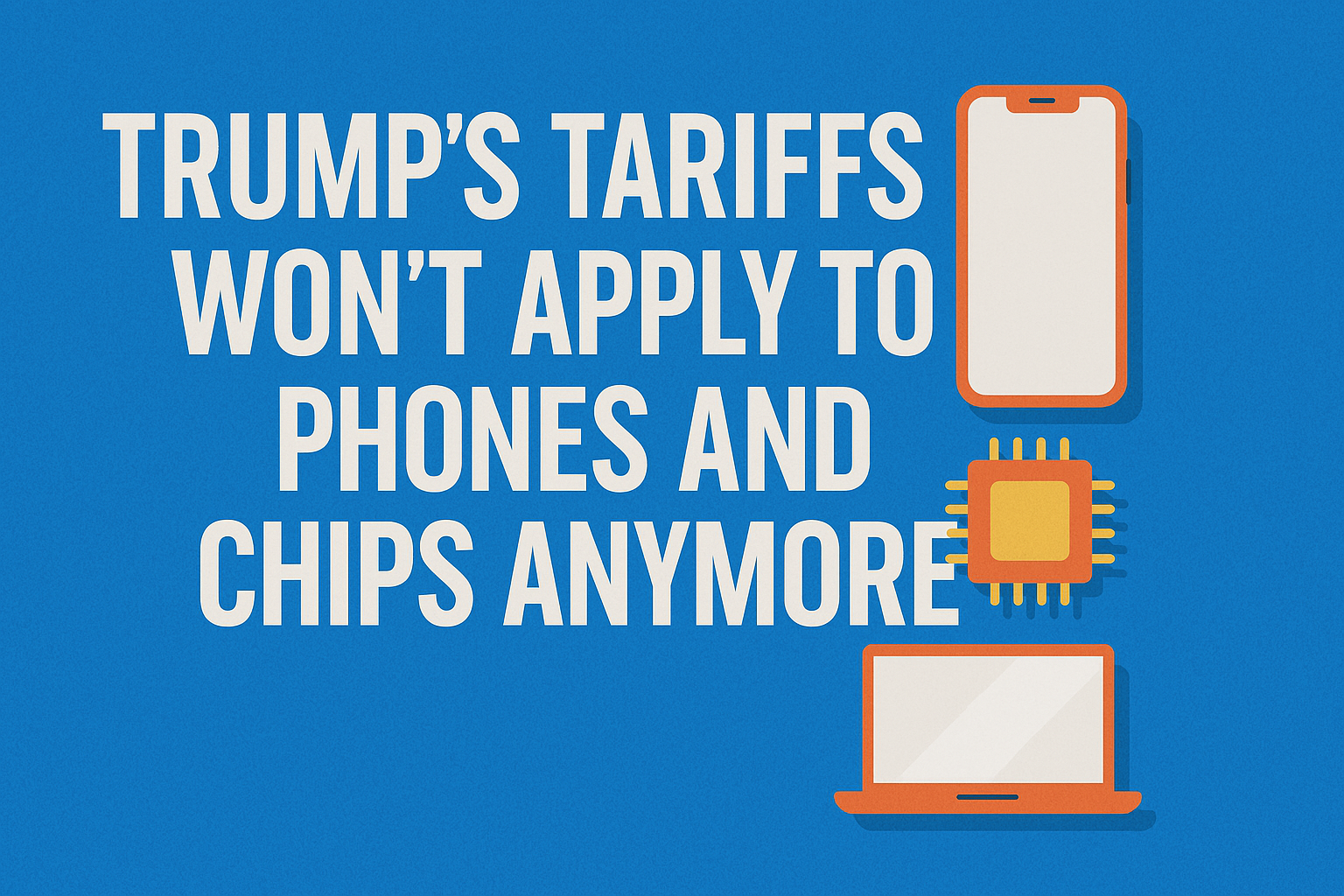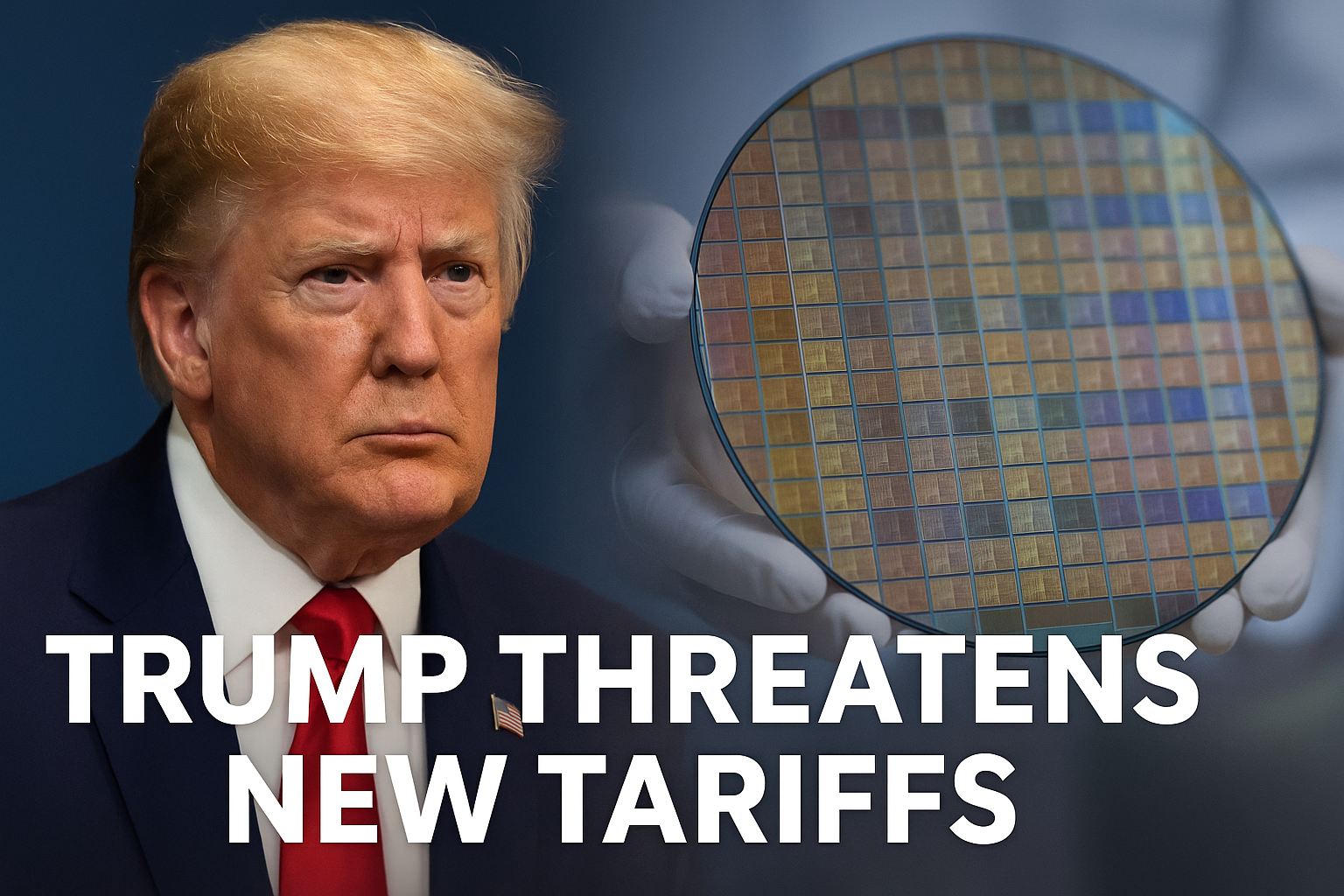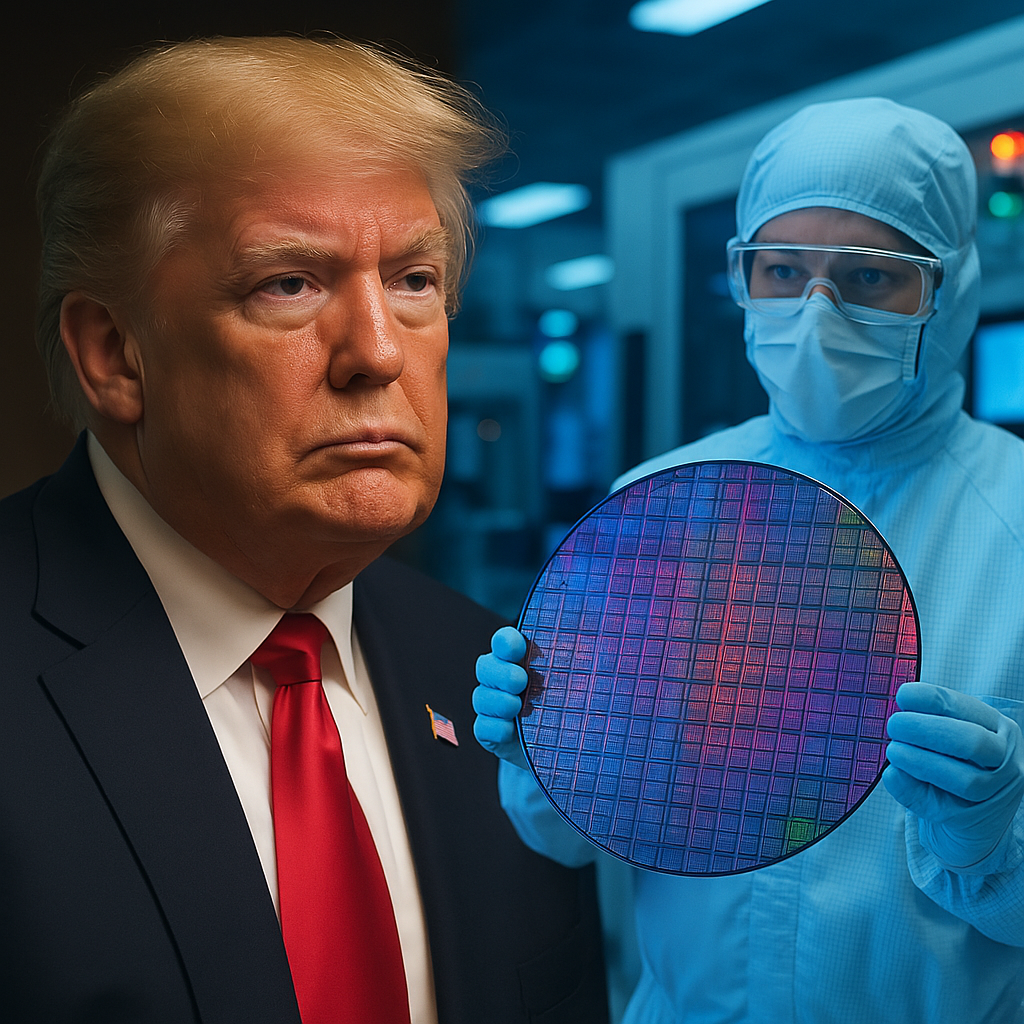There’s been a big shift in U.S. trade policy: smartphones, chips, and other key electronics are now exempt from the steep tariffs President Trump recently introduced.
What’s Excluded From the Tariffs?
According to U.S. Customs and Border Protection (CBP.gov), the following products are no longer subject to the 125% tariff on Chinese goods or the 10% import tariff from other countries:
-
Networking gear (routers, modems)
-
Storage hardware (hard drives, memory cards, processors)
The goal of the exemption is to ease panic in the global markets and lower tensions in the trade fight—especially with China. According to the Financial Times and Bloomberg, electronics make up roughly 30% of Chinese exports to the U.S., so this is a significant change.
Apple and Big Tech Under Pressure
Apple has been one of the hardest-hit companies because of its heavy reliance on Chinese production. Reuters reported that Apple shipped 1.5 million iPhones to India this week to get around the China tariffs. India’s import taxes are lower (around 26%) and currently paused on some goods.
For businesses selling electronics or relying on imported parts, this could offer temporary relief—but it’s no guarantee of long-term stability.
Why the Exemption Now?
The White House hasn’t officially commented, but insiders say the shift may be tied to recent panic in U.S. bond markets and concerns from global investors.
As reported by CNBC, both stock and bond markets took a hit when the original tariffs were announced. Allowing tech exemptions may be a way to prevent further damage to U.S. markets—and to companies like Nvidia, AMD, and Broadcom, which depend on international supply chains.
What Entrepreneurs Should Watch For
Even with these exemptions, the trade war with China is still going. If you import or sell electronics, here’s what to keep in mind:
-
Exemptions can change fast—stay updated with official sources like CBP.gov
-
Use tools like TariffAlternative.com to check your product codes and import taxes
-
Keep an eye on where your suppliers are based—companies are already shifting production to countries like India and Vietnam
This move might help cool things down for now. But don’t let your guard down—trade policy could shift again, especially in an election year.


